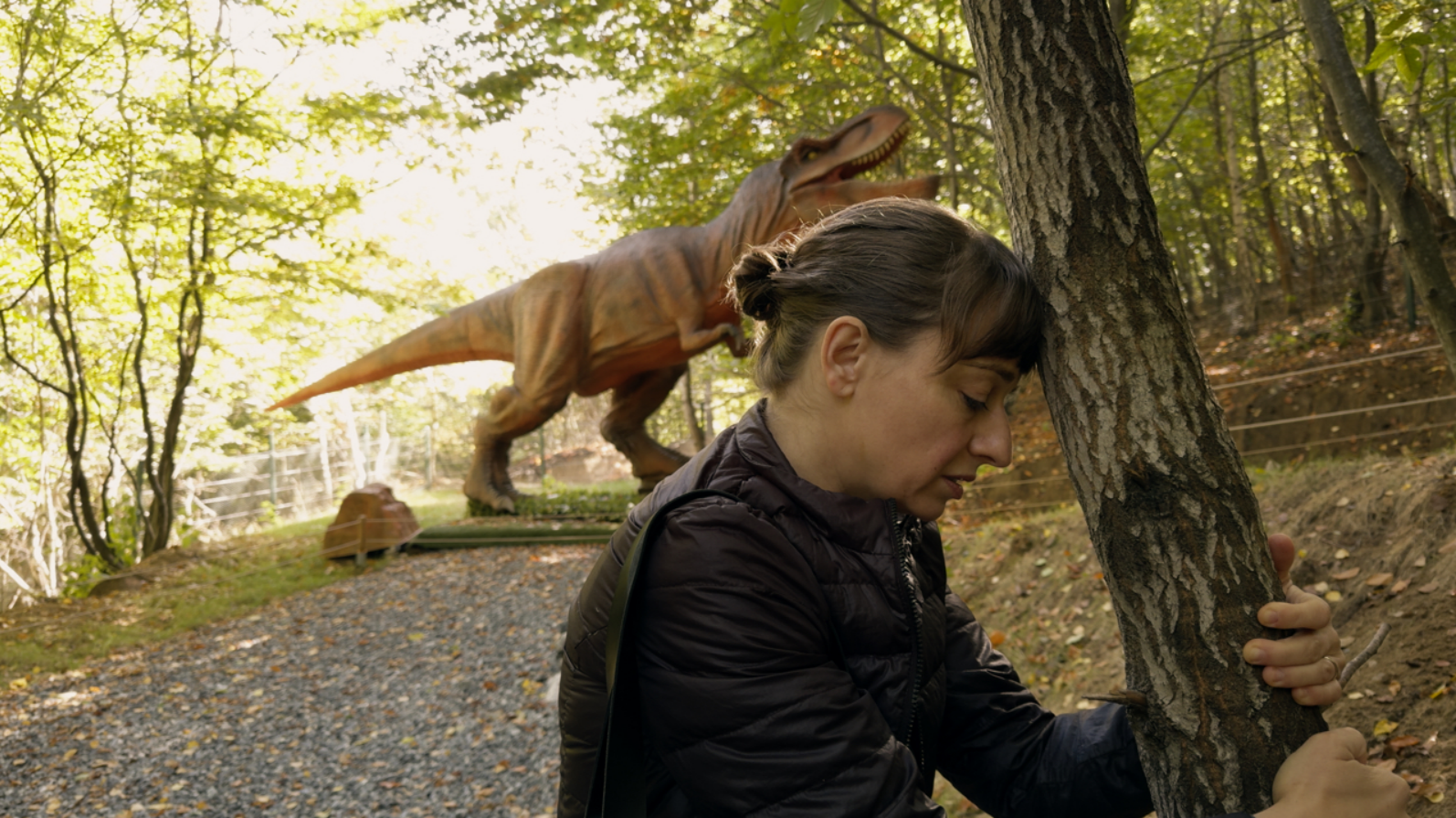MIFF 2025 | ‘Kontinental ‘25’ review: Radu Jude at the peak of his powers
Chuckles may be thin on the ground here, but the Romanian auteur’s pivot from satire to social realism is a most welcome change.
Eszter Tompa in “Kontinental ‘25.” Photo courtesy of the Melbourne International Film Festival.
By all accounts, Radu Jude’s “Kontinental ‘25” is the little film that could. Despite its humble origins as a low-budget side project during the filming of Jude’s other 2025 effort (the gargantuan, three-hour-long lampooning of “Dracula”) and its near-complete mismatch with the rest of the Romanian provocateur’s gonzo, highly experimental oeuvre, the film ended up winning the Silver Bear for Best Screenplay at this year’s Berlinale. At first blush, such prestige feels far too outsized for a venture that wasn’t even its maker’s primary focus during its inception. But Jude is no stranger to winning metallic Bears in Berlin, and “Kontinental ‘25” is a brilliant showcase of what a filmmaker at the peak of his powers can do even after simmering down and sobering up.
Jude’s reimagining of the Rossellini classic “Europa ‘51” follows hapless bailiff Orsolya Ionescu (Eszter Tompa) as she enters an emotional and existential period of self-reckoning after a routine eviction inadvertently causes the suicide of unhoused former national athlete Ion (Gabriel Spahiu). Set against the crumbling, graffitied, yet dignified backdrop of modern-day Romania, Orsolya’s journey to self-forgiveness — or some semblance thereof — brings a bevy of unusual characters her way, including a foul-mouthed priest, a hyperactive food delivery cyclist, and her own racist mother. But the questions that Orsolya poses to herself is one that not even Jude or his viewers can answer. In the face of great tragedy, is self-flagellation the path to absolution? How do we adequately tackle society’s deepest ills without completely unmaking ourselves?
Unlike the genteel dignity of Rossellini’s Irene Girard, Orsolya is ruffled and abject; a Hungarian Philomena Cunk who is only slightly more competent and just as forlorn. The ambiguity with which Jude writes her character is ingeniously frustrating — we can never quite be sure if her bumbling attempts to make good are earnest or feigned; if her need to call up everyone she knows and recount Ion’s suicide is thinly-veiled sympathy-baiting or a natural response to a deeply traumatic event. An inferior filmmaker might have been inclined to cast Orsolya’s actions in a sanctimonious light, but Jude’s frank dialogic approach to writing and cinematographer Marius Panduru’s no-frills framing ensure that “Kontinental ‘25” never quite loses its sense of compassion even as it occasionally smirks at its characters’ gormlessness. Orsolya is neither detestable nor entirely without grace; she is remarkably and quite simply human. Over the course of the film’s 109 minutes, her dark night of the soul eventually becomes ours by osmosis. Therein lies Jude’s greatest strength, and his ability to lay bare the many contradictions inherent to modern humanity shines brighter than ever once stripped of his usual jokes and jests.
Which brings us to the fact that, contrary to Jude’s usual cinematic fare, there are not many laughs to be found in “Kontinental ‘25.” The film is a mostly sombre affair, and far removed from the Romanian auteur’s best-known works “Bad Luck Banging” and “Do Not Expect Too Much From The End of The World.” But to conflate sobriety with flaccidity would be a mistake. Jude’s trademark absurdism shines through in multiple scenes, including a standout sequence where Orsolya and her friend Dorina (Oana Mardare) discuss corrective philanthropy and the Hungarian-Romanian conflict, soundtracked by distant yet incongruous hard techno thudding out of a stranger’s Bluetooth speaker. Elsewhere, even as she continues to process her mishap with Ion, Jude lingers on wide shots of construction sites, where apartments are being built to house the next generations of this maladied but still-growing country. Orsolya may be content to wallow in her misery forever, but all around her, life moves interminably on. So is continuous self-inflicted misery penance, or simply performative?
Chuckles may be a little thin on the ground, but “Kontinental ‘25” does its best to remind its audience that life doesn’t need to be all doom and gloom. Just when Orsolya’s grief begins to grow exhausting for both viewers and supporting characters alike, Fred (Adonis Tanța) arrives: a suspiciously nationalistic food delivery cyclist and failed legal academic addicted to recounting anecdotes about long-dead Zen Buddhist monks. Fred’s time onscreen is a strangely uplifting one, thanks to Tanța’s endearing screen presence and infectious charm, and by the time the film reaches its uncertain yet cautiously buoyant conclusion, viewers aren’t left feeling entirely castigated by the unanswerable questions at the film’s heart. It’s a tough balancing act to pull off, but really, who better to do it than the filmmaker who has spent his entire career tenderly poking fun at neoliberalism and late-stage capitalism’s biggest idiosyncrasies? Jude’s unexpected pivot from flat-out satire to social observation is a most welcome expansion to his films’ emotional range, and, laughs or no laughs, “Kontinental ‘25” is the auteur’s most thought-provoking venture yet.
